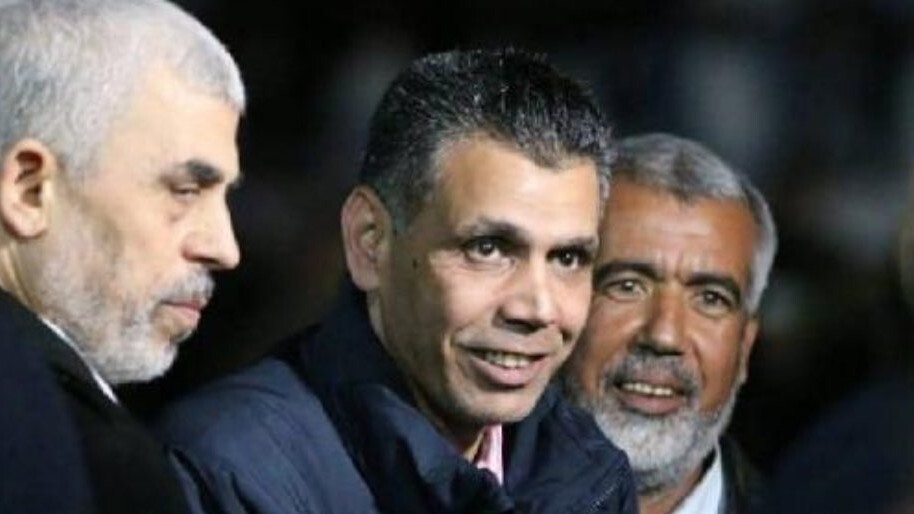CIA director reviewed Gaza peace proposal accepted by Hamas, sources say

CIA Director William Burns reviewed a Gaza ceasefire proposal approved by Hamas earlier this month before it was submitted to Israeli officials, two current and one former Egyptian intelligence officials told Middle East Eye.
Last week, CNN reported that an Egyptian intelligence official had “quietly changed” the terms of the proposal, surprising negotiators and leading to Israel rejecting the deal.
According to three anonymous sources cited by CNN, the proposal approved by Hamas on 6 May was different from the one originally submitted to the group by the Qataris or Americans.
The sources said the changes were made by Major General Ahmed Abdel Khalek, the deputy head of Egypt’s General Intelligence Service.
Burns was reportedly angry and embarrassed. He “almost blew a gasket”, one of the sources told CNN.
New MEE newsletter: Jerusalem Dispatch
Sign up to get the latest insights and analysis on Israel-Palestine, alongside Turkey Unpacked and other MEE newsletters
However, the three Egyptian intelligence sources told MEE that Burns was among several mediators who reviewed the draft before it was sent to Israel.
The CIA did not respond immediately to a request for comment.
The major stumbling block in the negotiations revolved around the phrase “sustainable calm”, with Palestinian negotiators seeking a clearer definition of what this meant. The sources said their demand was included in the draft sent to Israel.
The pre-emptive announcement of Hamas’s acceptance of the proposal put pressure on Israeli Prime Minister Benjamin Netanyahu, who then rejected the deal, they said.
The proposal, which MEE has published here, was made up of three six-week stages and would lead to a permanent ceasefire, the full withdrawal of Israeli forces from the Gaza Strip, and an end to the siege.
It also included the release of all Israeli captives held in Gaza in exchange for a number of Palestinian prisoners to be agreed upon at a later stage.
A source close to Hamas, familiar with the ceasefire talks, told MEE on Tuesday that the Palestinian organisation had informed mediators it was ending its participation in ceasefire negotiations until Israel ends its offensive on Rafah, withdraws its troops and reopens Rafah crossing - a critical entry point for food, medicine and other supplies for Gaza's more than two million people.
The source said that Egypt was scapegoated for a breakdown of talks even though the Americans had “agreed to the two amendments by Hamas, and then because they were unable to oblige Netanyahu, they accused Egypt”.
Close ties to Gaza
Abdel Khalek, the second-in-command in the General Intelligence Service, is a veteran in the agency's Palestinian division and is known for his close ties with Palestinian factions in Gaza.
He rose to prominence in 2011 as one of the main mediators working on a deal that exchanged Palestinian prisoners for captured Israeli soldier Gilad Shalit.
Sources familiar with the exchange said the agreement had been suspended for six months because Israel was resisting the release of Yahya Sinwar, the current head of the Hamas office in Gaza.

Eventually, under Egyptian pressure, Sinwar was released and the deal was completed.
Despite Abdel Khalek’s crucial involvement, two intelligence sources said he has been removed from managing Palestinian issues several times since 2011 due to pressure from military intelligence, which competes with the General Intelligence Service for influence and relationships.
Abdul Khalek has been brought back in the past when major issues have flared. He helped broker a ceasefire during an Israeli offensive on Gaza in 2021 and has been involved following the Hamas-led attacks on 7 October 2023 and Israel’s subsequent offensive on Gaza.
The Egyptian intelligence sources suspect that the leak of Abdel Khalek’s name, the first time a member of the negotiations team has been publicly named, may be an attempt to exclude him once again.
Members of Egypt’s military intelligence apparatus are already attempting to exploit purported American and Israeli anger against Abdel Khalek to have him replaced, but the agency has not done so until now, they said.
A source close to Hamas told MEE earlier this week that the information relayed by the sources to CNN regarding Abdel Khalek's alleged alterations to the latest Israel-Gaza deal was “nonsensical”.
“It’s unrealistic,” said the source, who spoke on condition of anonymity. “It’s not imaginable that the Egyptians would do such a thing.”
The source said the claims were an attempt to justify Israel’s refusal of the ceasefire agreement and subsequent invasion of Rafah.
Middle East Eye delivers independent and unrivalled coverage and analysis of the Middle East, North Africa and beyond. To learn more about republishing this content and the associated fees, please fill out this form. More about MEE can be found here.




